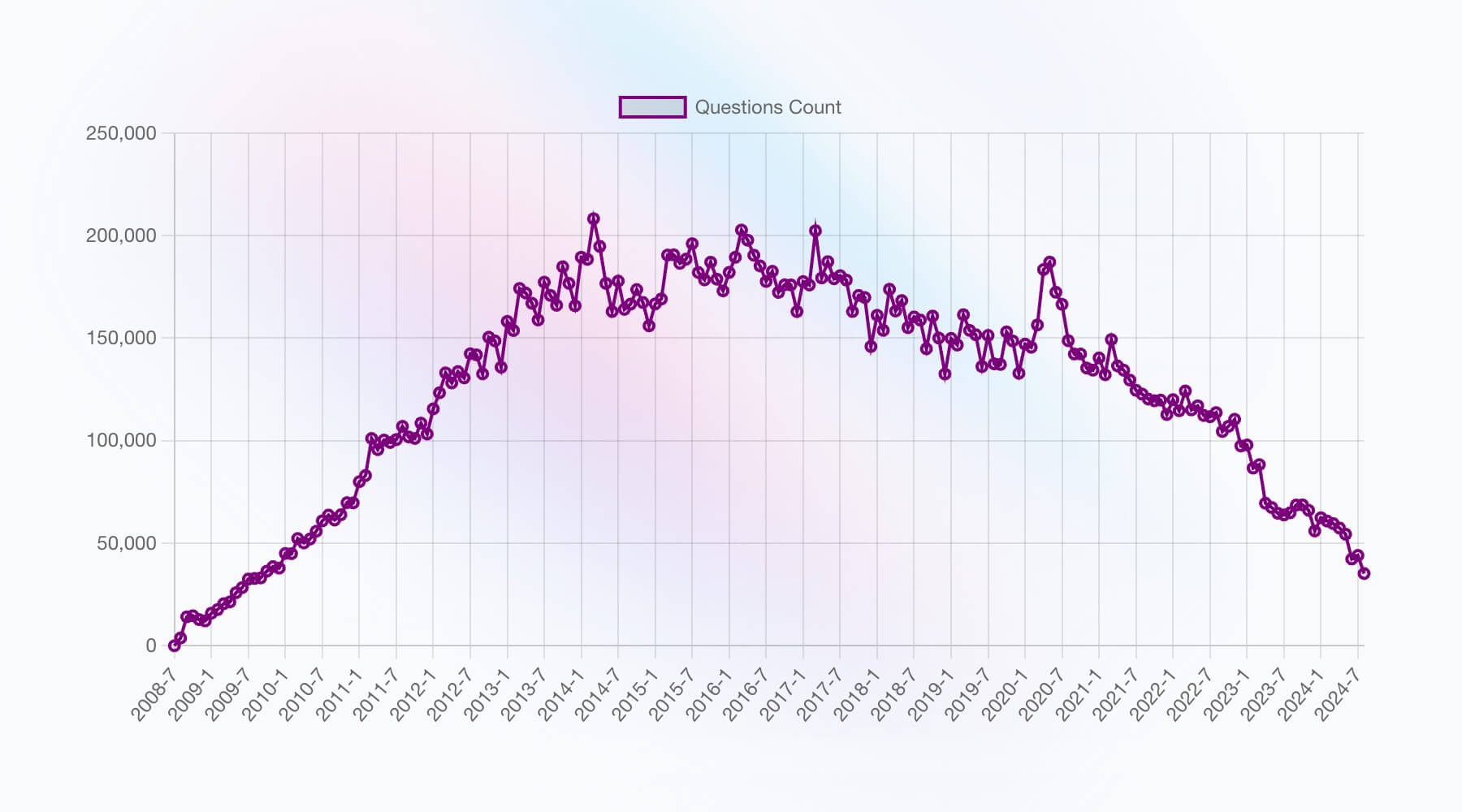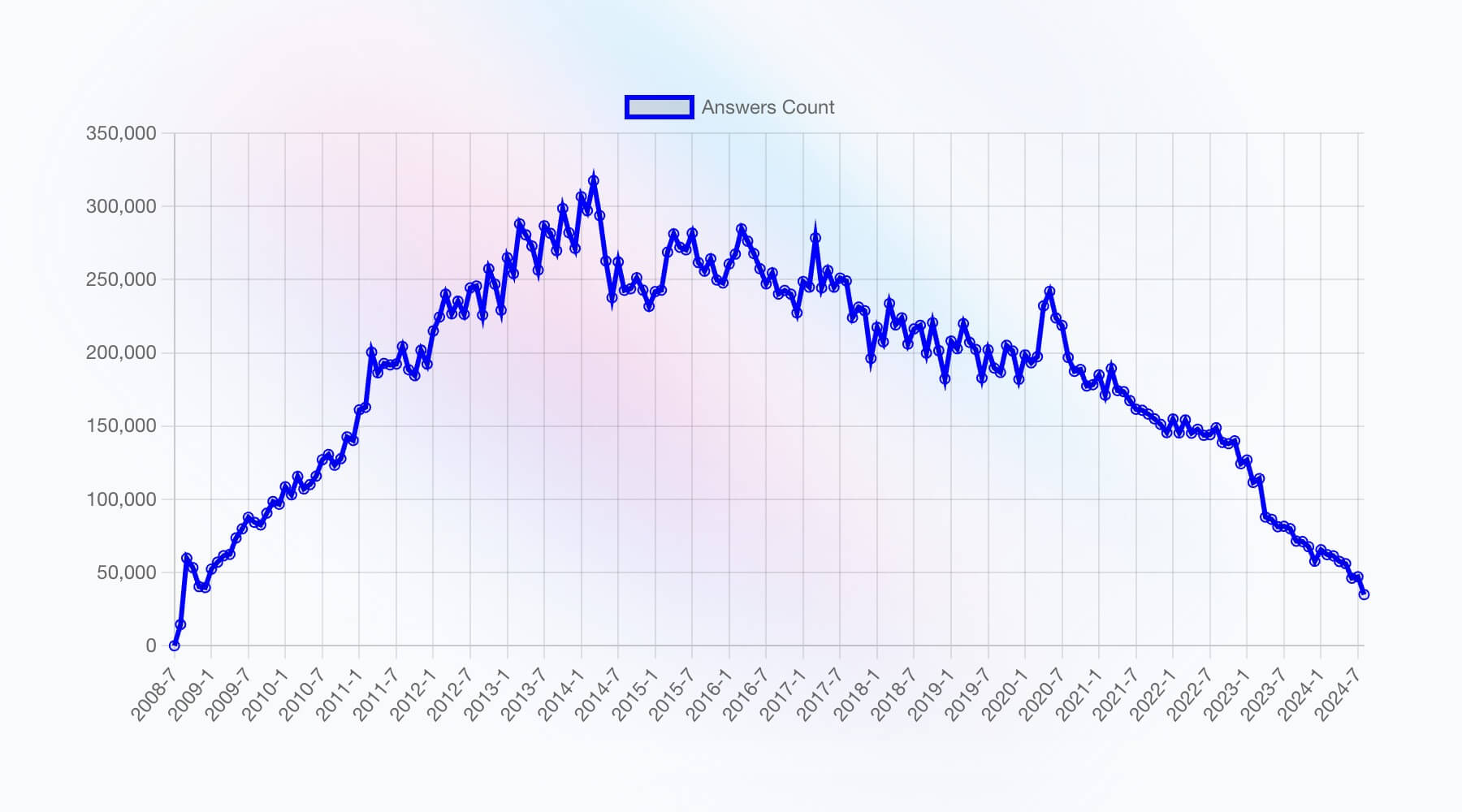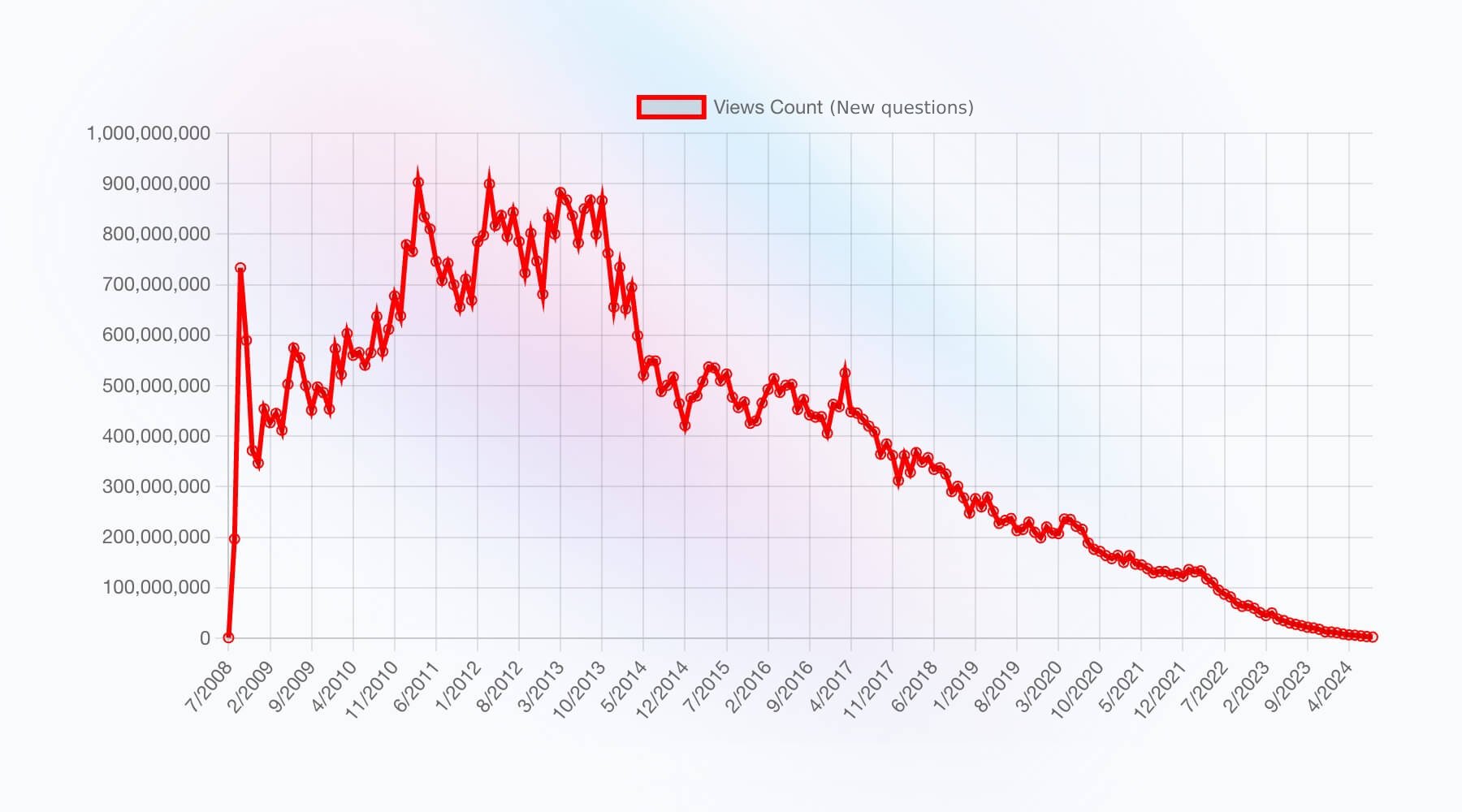The Fall of StackOverflow: A Data-Driven Analysis
Did ChatGPT kill StackOverflow, or was it already dying?
In recent years, the rise of advanced AI tools like GitHub Copilot and ChatGPT has sparked discussions about the future of StackOverflow. Many articles and posts suggest that StackOverflow is in decline, attributing its struggles to these new technologies. While these claims are certainly understandble and may may be intuitive, it's crucial to examine the data behind StackOverflow's performance to understand the broader trends.
Let's look at some data from the last 16 years.
Question Count

The Questions Count chart shows a steady increase from 2008 to 2013, followed by stagnation until 2018, when a gradual decline began. This decline accelerated sharply after ChatGPT's release in November 2022, but the decrease had started earlier, indicating pre-existing issues beyond the impact of the new AI. This is the raw data used for this observation.
Answer Count

The Answers Count chart reflects similar trends to the Questions Count chart, with a rise from 2008 to 2013, stagnation, and a decline starting in 2018. Both datasets saw a sharper drop after ChatGPT's release, and yet the decrease was already there before, pointing to issues beyond the AI's introduction. This is the raw data used for this observation.
View Count

The Views Count chart for new questions per month shows a clear and consistent decline starting in 2013. While users tend to focus on older questions, new questions are receiving fewer views over time. This trend underscores significant problems with StackOverflow’s model, which appears to be increasingly saturated. This is the raw data used for this observation.
Why StackOverflow started to fall?Let's list a few reasons mentioned by many on both social media and platforms like Reddit:
1. Questions became outdated, turning into a competition of which answer was better and more upvoted, which sometimes didn't yield useful results.
2. Heavy moderation discouraged people from asking questions.
3. The platform failed to encourage user engagement, leading to a decline in posts and answers after its peak popularity in 2012.
4. The UI remained outdated for a decade, while newer, more innovative approaches like chat-based interfaces emerged as alternatives.
Summary
StackOverflow's decline was a result of issues within its model and execution, which predated ChatGPT's introduction. While ChatGPT may have accelerated this decline, it was not the sole cause. There are likely many factors contributing to StackOverflow's struggles, but AI alone cannot account for the entirety of its challenges.